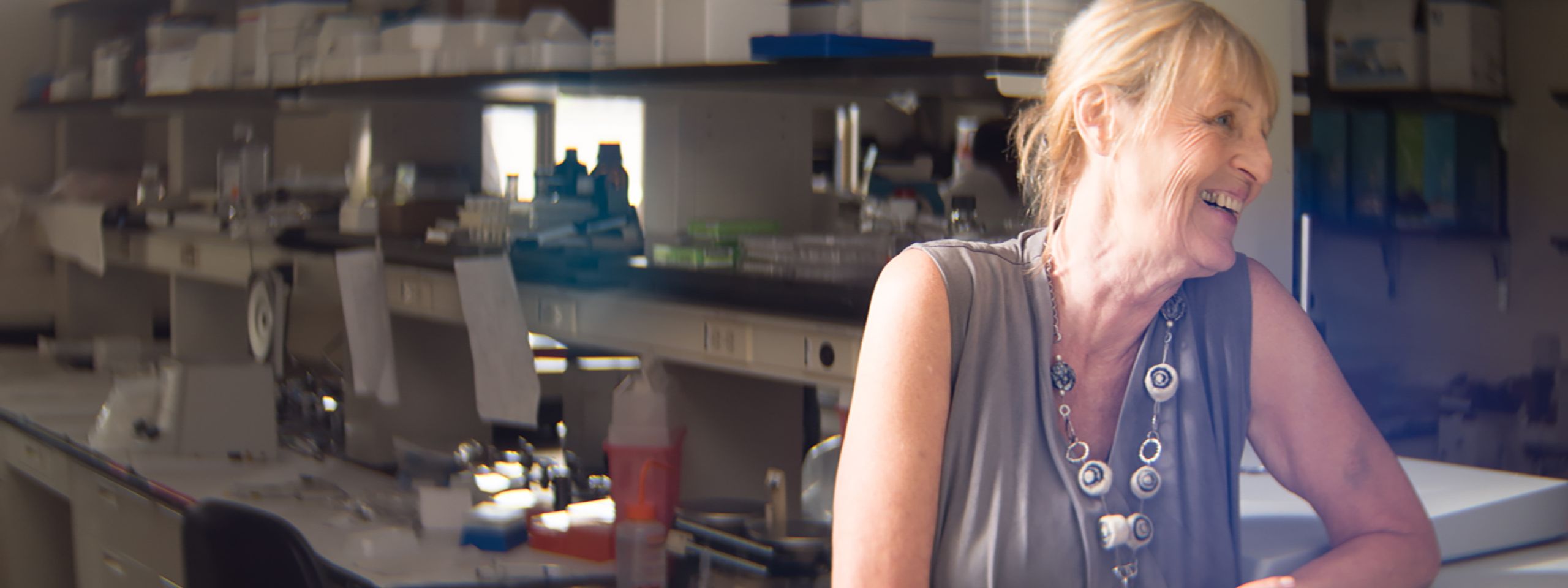Spotlight on Wistar COVID-19 Researcher: Hildegund C.J. Ertl, M.D.
Dr. Ertl is a global leader in Wistar’s Vaccine & Immunotherapy Center whose research focuses on preventing rabies, HBV, HIV, HPV, influenza, and other deadly viruses using innovative patented technologies. In response to the global COVID-19 emergency, the Ertl lab quickly applied some of these technologies to the development of a vaccine. She illustrates her approach and its advantages below.
Despite a record amount of research efforts on the novel coronavirus that is plaguing the globe, there is still a lot we don’t know, especially regarding the immune response that we develop against it. Therefore, in my lab we are taking a multi-pronged approach to maximize our chances of success.
The coronavirus is known for its unique crown-like shape, given by the “spikes” that cover the outside of the virus. These spikes act like “keys” that insert themselves into a “lock”, known as a receptor on the host cell, which then opens the door to host cell infection. Many researchers have chosen the spike as their vaccine target to prevent COVID-19 because antibodies that can block this key from accessing its lock should protect the host cells from infection. However, studies on other coronaviruses have shown that antibodies may not provide long-term and durable protection, so my lab is taking a dual-pronged approach to mobilize defenders within the immune system.
We have designed a vaccine strategy that targets both the spike and another protein on the viral coat using a proprietary platform developed in our lab to enhance immune response to the vaccine, which has shown promising effects in several settings.
To be more specific, we genetically modify adenoviruses to act as vaccine delivery vehicles because of their ability to stimulate potent and durable immune responses. Adenoviruses, which naturally cause mild or non-symptomatic respiratory illnesses, can be made incapable of replicating and causing infection and used as a platform for vaccine development.
This technology is very effective, relatively inexpensive and safe. Although no human vaccines based on replication-defective adenovirus vectors are currently on the market, several have been extensively tested in clinical trials.
One consideration that needs to be accounted for when working with human adenoviruses is that they are very prevalent in the population and most people are naturally exposed to them in early childhood, so that most adults carry in their blood antibodies that can inactivate adenovirus-based vaccines and reduce their efficacy.
To circumvent the issue of pre-existing immunity, my lab has pioneered the use of a weakened version of an adenovirus that causes infections in animals and has been modified so that it can’t grow in humans. We have used this approach for rabies and HIV vaccines that have shown efficacy in preclinical models.
We are quickly adapting this platform for COVID-19 vaccine development. Another group that I have collaborated with for many years at the University of Oxford is developing an adenovirus-based vaccine that has entered clinical trial stage a few weeks ago, but our approach provides further advantages because, as explained above, it targets two viral proteins and has the ability to further boost the immune response.
I am hopeful that our strategy can be successful because I believe that, at the moment, adenovirus-based vaccines are one of our best shots.
Dr. Ertl’s COVID-19 vaccine research has received critical support from the The G. Harold and Leila Y. Mathers Charitable Foundation, thanks to which she is able to bring her deep knowledge and expertise to the vaccine race to curb the pandemic. Dr. Ertl and Wistar are very grateful to Mathers for stepping in and providing much needed funding to move this research forward as fast as possible and for its continuous support of Wistar science. Dr. Ertl is also the co-founder of Virion Therapeutics, LLC, a Philadelphia-based start-up spun out of The Wistar Institute, developing new vaccine platform technologies.
